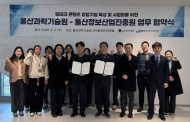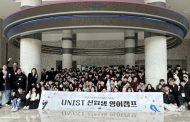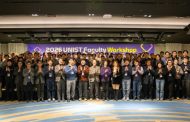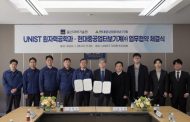UNIST has announced that its research team has recently been selected as the final team for the 2021 Alchemist Project, organized by the Ministry of Trade, Industry and Energy (MOTIE). UNIST has been selected to carry out a project on renewable energy, beating out the Seoul National University. The team will be receiving KRW 10 billion over a five-year period.
Through the project, the research team plans to develop super solar cells with an efficiency of 35%. Tandem technology will be used to develop these cells, which easily exceed the 30% limit efficiency of the existing silicon solar cells. Tandem technology combines the emerging perovskite solar cell technology with the existing silicon approaches. To this end, Professor Kyoung Jin Choi (Department of Materials Science and Engineering) who is a silicon solar cell expert, Distinguished Professor Sang Il Seok (School of Energy and Chemical Engineering) who is a world-renowned scholar in the field of perovskite solar cells, Professor Myoung Hoon Song (Department of Materials Science and Engineering), and Professor Changduk Yang (School of Energy and Chemical Engineering) gathered for the project.
Solar cell technologies need to fulfill three conditions to be worth commercializing, the so-called Golden Triangle. The research team will be also carrying out a range of research, related to long-term stability and price competitiveness. Leading research institutes and companies, such as KETI, KIST, Jusung Engineering Co., Ltd., and ENF Technology Co., Ltd. will also assist in the process.
Meanwhile, the Alkimist Project, which started in 2019, is a tournament-type technology development project. The project takes cues from alchemists from ancient Greece who failed to create the gold or other valuable metals but established the foundations of modern chemistry through tireless experimentation.
Out of 10 research teams contested in the renewable energy sector, those teams, affiliated with UNIST, the Seoul National University, and Korea University have been selected as preliminary teams for this year’s project. These teams had carried out preliminary research over the past two years.












